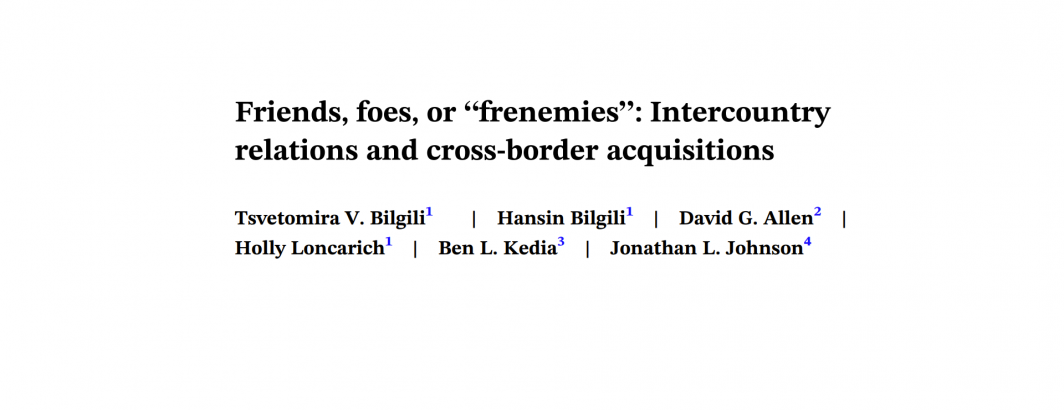
We draw on the political institutions approach and relational embeddedness perspective to advance a relational theory of policy risk. We argue that policy risk negatively affects acquisition completion, but the strength of the effect is dependent on home-host country relations. Home-host country relations underpin host governments' motivation to commit to policies and influence foreign acquirers' perceptions of the credibility of such commitments. Using longitudinal event data on intercountry interactions, we measure the valence and strength of home-host country relations and examine the relationship between policy risk and cross-border acquisition (CBA) completion under cooperative, conflictive, and ambivalent relations. In a sample of 26,124 CBAs, we find that the relationship is negative and strong under conflictive relations, weaker under cooperative relations, and weakest under ambivalent relations. We examine whether acquirers can use intercountry relations to infer and predict host governments' credibility of commitment to policies and evaluate the risk of arbitrary or opportunistic policy changes. Results show that policy risk decreases the likelihood of CBA completion, but the effect depends on home-host country relations. The negative effect of policy risk is strongest under conflictive intercountry relations, weaker under cooperative relations, and weakest under ambivalent relations. Executives' evaluations of home-host country relations in high policy risk environments can help assess the risk associated with completing CBAs and develop appropriate strategies to address potential issues.